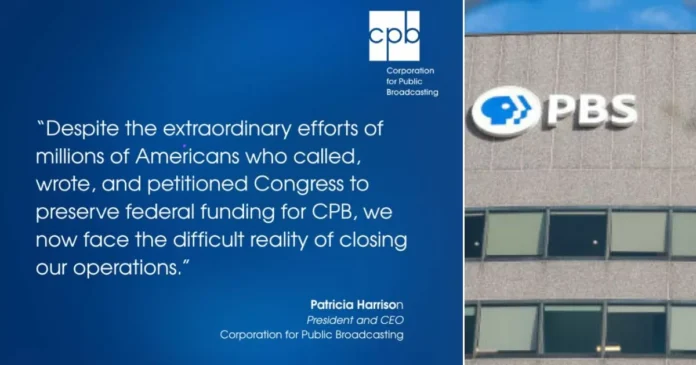Public broadcasting has been a cornerstone of American media for decades, providing educational and informative programming to millions of viewers and listeners. However, this beloved institution may soon face a devastating blow as federal budget cuts threaten to eliminate its government funding.
The recent announcement that the Corporation for Public Broadcasting (CPB), the primary funder of public broadcasting in the United States, will be shutting down in January has sent shockwaves through the media industry. This decision comes as a result of the Trump administration’s proposed budget cuts, which aim to reduce federal spending on non-defense programs.
For many, the news of CPB’s impending closure is not just a loss of funding, but a loss of a vital platform for diverse voices and perspectives. Public broadcasting has long been a champion of independent and non-commercial media, providing a platform for underrepresented communities and viewpoints. It has also been a source of quality educational programming for children and adults alike, fostering a love for learning and critical thinking.
The impact of these budget cuts will be felt not only by the public broadcasting stations themselves, but also by the millions of Americans who rely on them for news, information, and entertainment. NPR and PBS, two of the most well-known public broadcasting networks, will be hit hard by the loss of CPB funding. This could result in the cancellation of popular programs, reduced coverage of important news events, and a decrease in the quality of programming overall.
Furthermore, the closure of CPB will have a ripple effect on the entire media landscape. Public broadcasting stations often collaborate with local and regional media outlets, providing valuable resources and support for independent journalism. Without this partnership, these smaller media organizations may struggle to survive, leading to a decline in media diversity and a loss of important community voices.
The decision to cut funding for public broadcasting is not only short-sighted, but also goes against the very principles of a free and democratic society. Public broadcasting serves as a vital check on the power of the government and other media conglomerates, providing unbiased and fact-based reporting. Without this crucial source of information, the public may be left with only a narrow and biased view of the world.
However, despite these challenges, there is still hope for the future of public broadcasting. The outpouring of support from viewers and listeners across the country has been overwhelming, with many expressing their outrage and disappointment at the proposed budget cuts. This shows that public broadcasting is not just a government-funded entity, but a beloved and essential part of American culture.
Furthermore, there are efforts underway to secure alternative sources of funding for public broadcasting. Private donations and corporate sponsorships have already been proposed as potential solutions to fill the gap left by the loss of CPB funding. This demonstrates the resilience and determination of the public broadcasting community to continue providing quality programming to the American people.
In the face of adversity, it is important to remember the invaluable contributions that public broadcasting has made to our society. From groundbreaking documentaries to thought-provoking talk shows, public broadcasting has been a beacon of truth and integrity in a sea of sensationalized media. It has also been a unifying force, bringing people from all walks of life together through shared experiences and knowledge.
As we approach the potential closure of CPB in January, it is crucial that we stand together and fight for the future of public broadcasting. We must urge our government to reconsider these damaging budget cuts and recognize the vital role that public broadcasting plays in our society. Let us not allow this cherished institution to fade away, but instead, let us work together to ensure that it continues to thrive for generations to come.

